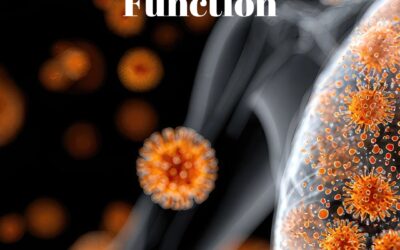Node Smith, ND
A recent study from Norway determined that by the end of pregnancy, 1 in 3 women are deficient in vitamin D.1 During the winter, when the days are much darker, this percentage rose to nearly 50 percent.
Use of sunscreen during the summer months further inhibits vitamin D production
The study’s lead author points out that “It’s tough to get enough vitamin D from dietary sources, and for 6 months of the year the sunlight isn’t sufficient at northern latitudes for our skin to make the vitamin. Even though we see the sun, it’s too low for us to produce vitamin D.” She adds that the use of sunscreen during the summer months further inhibits vitamin D production.
Vitamin D status during pregnancy can have significant repercussions. Two specific outcomes addressed in this study were bone mass and risk of childhood asthma.
Vitamin D crucial for bone mass
Low vitamin D levels can significantly affect bone health of the child as well as the mother. Vitamin D is crucial for the absorption and utilization of calcium. In pregnancy, this becomes even more important because the skeletal system of the baby is being created, as well as the one of the mother maintained. Previous studies have shown that offspring of vitamin D deficient mothers routinely have lower bone mass.
Childhood asthma
Vitamin D status during pregnancy has been shown to correlate not only to premature birth, but increased risk of childhood asthma. Supplementing vitamin D during pregnancy has been shown to reduce this risk.
In addition, low levels of vitamin D have been seen to correlate with a higher risk of preeclampsia, and gestational diabetes.
Despite the known benefits of vitamin D, and the health risks associated with low levels of the vitamin, it is not uncommon for women to not receive recommendations regarding vitamin D supplementation. The current study found that less than 20% of pregnant women were recommended to take vitamin D during pregnancy.
Source:
- Gustafsson MK,Romundstad PR,Stafne SN, et al. Alterations in the vitamin D endocrine system during pregnancy: A longitudinal study of 855 healthy Norwegian women. PLOS; April 11, 2018. https://doi.org/10.1371/journal.pone.0195041
Image Copyright: <a href=’https://www.123rf.com/profile_gpointstudio’>gpointstudio / 123RF Stock Photo</a>
 Node Smith, ND, is a naturopathic physician in Portland, OR and associate editor for NDNR. He has been instrumental in maintaining a firm connection to the philosophy and heritage of naturopathic medicine among the next generation of docs. He helped found the first multi-generational experiential retreat, which brings elders, alumni, and students together for a weekend camp-out where naturopathic medicine and medical philosophy are experienced in nature. Four years ago he helped found the non-profit, Association for Naturopathic ReVitalization (ANR), for which he serves as the board chairman. ANR has a mission to inspire health practitioners to embody the naturopathic principles through experiential education. Node also has a firm belief that the next era of naturopathic medicine will see a resurgence of in-patient facilities which use fasting, earthing, hydrotherapy and homeopathy to bring people back from chronic diseases of modern living; he is involved in numerous conversations and projects to bring about this vision.
Node Smith, ND, is a naturopathic physician in Portland, OR and associate editor for NDNR. He has been instrumental in maintaining a firm connection to the philosophy and heritage of naturopathic medicine among the next generation of docs. He helped found the first multi-generational experiential retreat, which brings elders, alumni, and students together for a weekend camp-out where naturopathic medicine and medical philosophy are experienced in nature. Four years ago he helped found the non-profit, Association for Naturopathic ReVitalization (ANR), for which he serves as the board chairman. ANR has a mission to inspire health practitioners to embody the naturopathic principles through experiential education. Node also has a firm belief that the next era of naturopathic medicine will see a resurgence of in-patient facilities which use fasting, earthing, hydrotherapy and homeopathy to bring people back from chronic diseases of modern living; he is involved in numerous conversations and projects to bring about this vision.





















